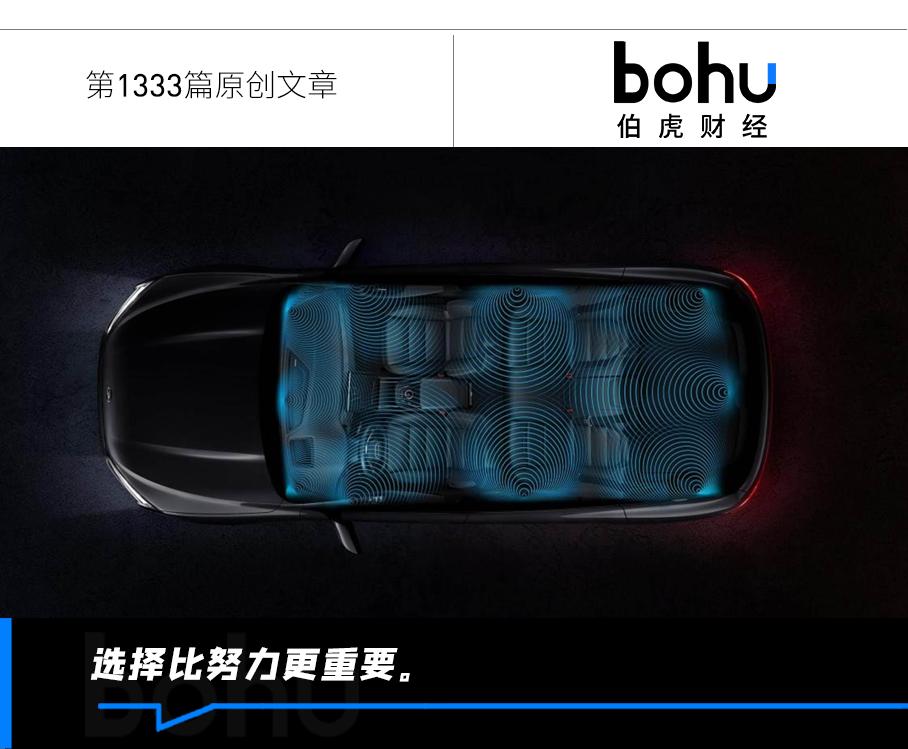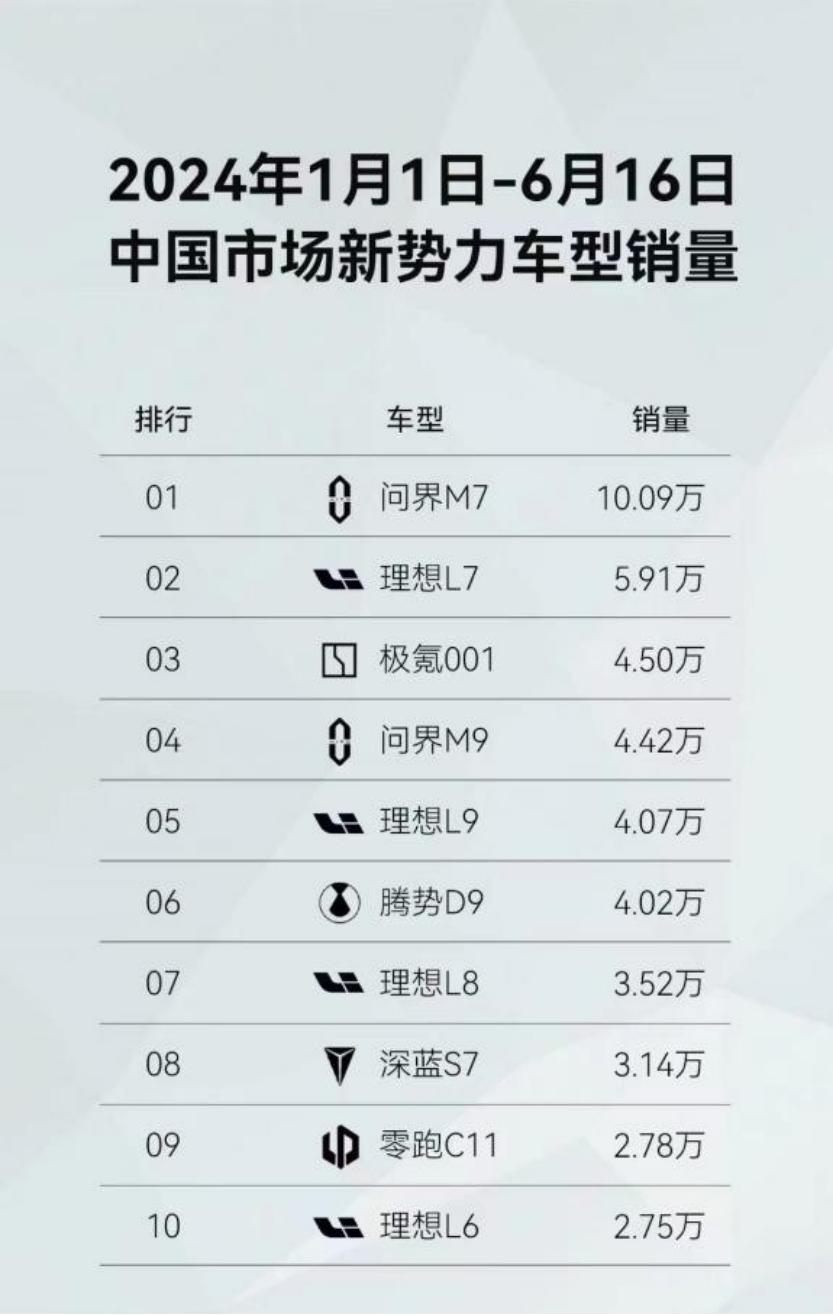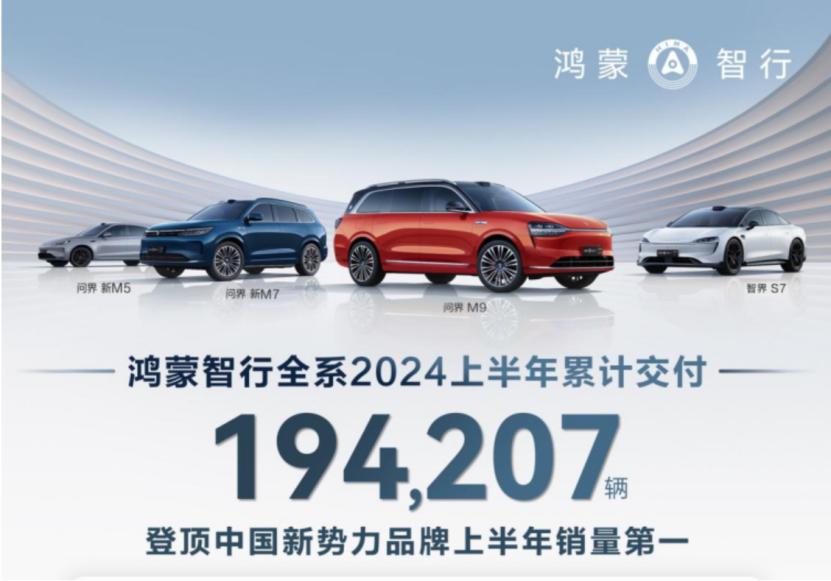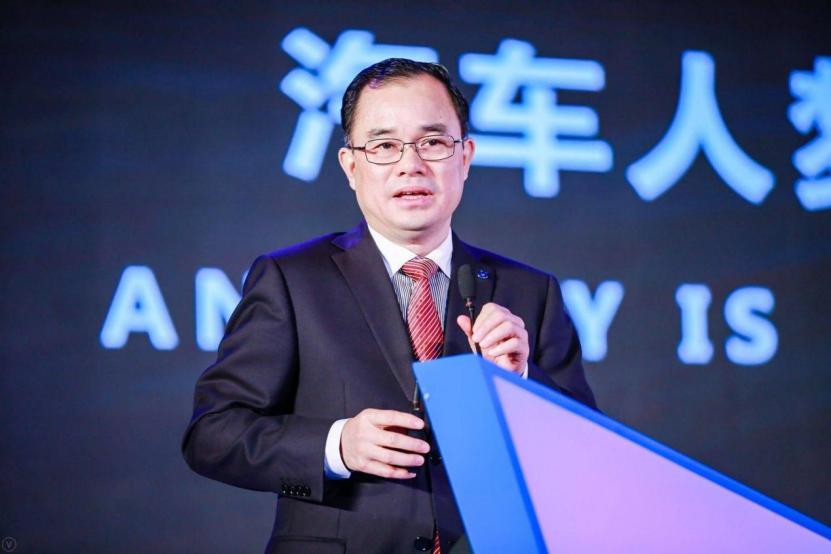Discount Sale of the "Wenjie" Trademark: What Does Huawei Intend?
![]() 07/07 2024
07/07 2024
![]() 547
547

Source: BohuFN
Recently, Seres issued an announcement stating that its subsidiary, Seres Automobile Co., Ltd. (hereinafter referred to as "Seres Automobile"), intends to acquire all global categories of the "Wenjie" trademark and related trademark rights, application rights, and design patents held by Huawei, with a total acquisition price of 2.5 billion yuan.
Seres stated that this transfer does not affect the existing cooperation between the two parties and further safeguards the long-term development of AITO Wenjie. Huawei also quickly responded, saying that it will continue to support Seres in manufacturing and selling Wenjie.
In fact, before this, Huawei had already transferred the "Zhijie" and "Xiangjie" trademarks to Chery Automobile Co., Ltd. and BAIC Motor Corporation, Ltd., respectively. Therefore, the transfer of the "Wenjie" trademark was also expected.
However, as the first "brand" launched by Huawei after entering the new energy vehicle market, "Wenjie" has a different meaning for Huawei. Moreover, the transfer price of this time is only 2.5 billion yuan, while according to relevant evaluation reports, the commercial value of the "Wenjie" trademark will exceed 10 billion yuan.
By transferring the "Wenjie" trademark to Seres in a "half-sell, half-give" manner, in addition to ushering in a new stage of cooperation under the intelligent selection model, Huawei seems to have once again declared to the outside world its determination not to manufacture cars.
01 Comprehensive Turnaround of the "Intelligent Selection Model"
In May this year, Yu Chengdong, Chairman of Huawei's Intelligent Automotive Solutions BU, said in an interview with Tencent Auto's "High Beam" that in the first quarter of this year, Huawei's Intelligent Selection Car BU and Car BU have all turned losses into profits, and will achieve healthy positive development from April onwards.
Among them, the significant sales of Huawei's Intelligent Selection cars, especially the popular refreshed Wenjie M7, played a crucial role. Data shows that the cumulative sales of the new Wenjie M7 exceeded 100,000 vehicles in the first half of this year, making it the number one new force vehicle in China in the first half of the year.

The excellent sales performance of Huawei's Intelligent Selection cars has also relieved Yu Chengdong. Huawei's Car BU (Huawei Intelligent Automotive Business Department) was established in 2019, but the first person in charge was not Yu Chengdong, but Wang Jun.
Wang Jun built the Car BU from scratch and incubated five major product departments. However, in the following year, Huawei's Car BU business was reclassified into the Consumer BG and handed over to Yu Chengdong for management, with Wang Jun still serving as president. Moreover, Wang Jun was reportedly suspended in early 2023.
From the outside world's perspective, it seems that there is an irreconcilable "contradiction" between Wang Jun and Yu Chengdong. In fact, the biggest difference between the two lies only in the direction of intelligent driving business development.
As we all know, Huawei's "auto manufacturing circle of friends" has three models: component model, HI model, and intelligent selection model. Among them, Wang Jun proposed the HI model based on the component model, while Yu Chengdong advocated the intelligent selection model.
The biggest difference between the two models lies in the different cooperation methods and profit models. The HI model advocated by Wang Jun is essentially still a "buyer-seller relationship," selling Huawei's full-stack intelligent automotive solutions. However, this model is equivalent to a "package deal." If the model's sales are poor after it goes on the market, Huawei's income will be "cut off," and the initial communication and integration will be wasted.
The intelligent selection model can help Huawei earn two sums of money: one is the profit from the distribution channel, and the other is the phased development costs and component costs. Yu Chengdong has also publicly stated that the traditional component model is equivalent to traditional car manufacturers asking Huawei to provide solutions. Each component is designed through separate bidding, which cannot compete with the intensification, low cost, and high reliability of three components from others.
How Huawei internally "races" is unknown to the outside world. However, according to data, since its establishment in 2019, Huawei's Car BU has been in a state of loss, but the loss margin has been narrowing. From 2021 to 2023, it lost 10 billion, 8 billion, and 6 billion yuan, respectively. In 2024, it seems to have finally ushered in the dawn of comprehensive profitability.
Partner Seres also turned losses into profits for the first time in the first quarter of this year, selling 95,000 vehicles, with revenue of 26.561 billion yuan and a net profit of 220 million yuan.
From this point alone, it is not difficult to understand why the intelligent selection model has become the main model for "Huawei's car manufacturing." Public data shows that Huawei's Car BU has invested more than 30 billion yuan in cumulative research and development, while the automotive business is the only loss-making business of Huawei in recent years. The pressure on profitability in this business is imaginable.
Therefore, the significant sales of Wenjie are not only crucial for Huawei to turn losses into profits but also mean that the intelligent selection model has initially gained market recognition. Only when the business model runs smoothly can it attract more car companies to join Huawei's "auto manufacturing circle of friends".
02 Huawei Does Not Manufacture Cars
Speculation about Huawei manufacturing cars has never stopped because Huawei has done everything a supplier should and shouldn't do in building the Wenjie brand.
Not only in terms of technology, from the launch event to the sales channel, Huawei's voice is much louder than Seres'. The cooperation between Huawei and Seres has been jokingly referred to as "seeing only Huawei, not Seres" or "Seres has become Huawei's OEM factory."
To this end, Huawei has repeatedly emphasized that it "does not manufacture cars." Not only has Huawei's chairman, Ren Zhengfei, emphasized this in public, but Huawei has also issued documents in 2020 and 2023, respectively, clarifying that Huawei does not manufacture complete cars.
However, even so, every time there are new developments in Huawei's automotive business, the outside world will speculate endlessly. For example, the "Wenjie" trademark originally belonged to a third-party company, Beijing Yong'an Shida Science and Trade Co., Ltd., other than Huawei and Seres, but in 2023, this company transferred the trademark to Huawei; the "Zhijie" trademark was also transferred from Chery to Huawei and recently transferred back to Chery by Huawei.
Whenever these moments arise, the outside world will speculate whether Huawei will fully acquire the "four circles" and start manufacturing complete cars to enter the automotive market. However, this year, Huawei has transferred the trademarks of "three circles" in one breath, seemingly using actions to prove once again that Huawei has no intention of "manufacturing cars": For partner car companies, trademarks are the most valuable intangible assets, and where they are, the dominant power lies. Therefore, Huawei's transfer of trademarks is actually reconfirming its business boundaries.
Huawei's recent personnel adjustments can also corroborate, to a certain extent, Huawei's determination not to manufacture cars. In May this year, Huawei officially announced that Yu Chengdong had been appointed as the chairman of the Terminal BG, with He Gang taking over as CEO. Yu Chengdong's frequent use of the phrase "far ahead" has also decreased significantly.
The reason why Huawei repeatedly reaffirms the positioning of its automotive business is partly because, for Huawei, simply manufacturing cars is not a "profitable" business.
Currently, there are not many automakers that can make money. Except for BYD, which profits from its low-cost manufacturing advantage, most automakers are still struggling in the new energy vehicle market. Huawei's advantage in intelligent driving technology is undoubtedly higher than its advantage in industrial manufacturing. At the same time, after the Wenjie crash incident, the deep binding with car brands has also had a negative impact on Huawei's own brand. Separating Huawei from electric vehicle brands is an urgent issue.
On the other hand, new technologies including intelligent driving have high technical barriers, large upfront investments, and long payback periods. Giants like Apple and Samsung have chosen to withdraw after investing heavily. To make money, the supplier model is only the foundation, and more importantly, scale.
Under this premise, repeatedly reaffirming the position of "not manufacturing cars" is also a need to win the trust of its partners.
03 Not Being a Traditional Supplier
Not manufacturing cars does not mean that Huawei merely wants to play the role of a traditional Tier 1 supplier: supplying parts and components to automakers, including motors, battery management systems, intelligent driving, and smart cockpit-related components.
In an interview, Yu Chengdong said that Huawei aims to cooperate with multiple automakers to create an ecological brand alliance. He believes that "we can't compete with others alone. We need to work together with several partners. By building an ecological alliance and jointly building this ecological platform, we can maximize its experience without product conflicts. With such sustained development, these few companies will become the survivors in the fierce competition in the future market."
On the one hand, Huawei is gradually making its automotive business independent.
At the end of last year, according to the "Investment Cooperation Memorandum" signed by Changan Automobile and Huawei, Huawei plans to establish a new company engaged in the research, design, production, sales, and service of automotive intelligent systems and component solutions. The outside world believes that this is a sign of Huawei's Car BU becoming independent.
In January this year, Huawei established Shenzhen Yingwang Intelligent Technology Co., Ltd. with a registered capital of 1 billion yuan. According to informed sources, "Yingwang" is the new company established by Huawei's Car BU, equipped with Huawei's current technology and resources in the Car BU.
With the establishment of "Yingwang," Huawei can better address the issue of "soul ownership" behind the intelligent selection model. Huawei's cooperation with automakers in manufacturing cars will not only be a business model cooperation but also a new platform built through equity cooperation between the two parties. Huawei and automakers will share technology and profits, and the Car BU will also be able to achieve self-sustainability.
On the other hand, last year, Huawei officially launched the HarmonyOS intelligent automotive technology ecosystem alliance, known as "HarmonyOS Intelligent Mobility," which has reintegrated the original intelligent selection model. From research and development, technology, delivery to marketing, and after-sales, it will usher in more standardized management.
The sales data released by Huawei in the first half of this year has already attributed the sales of the "four circles" to the "HarmonyOS Intelligent Mobility" ecological platform, with a cumulative delivery of 194,207 vehicles, surpassing NIO and becoming the number one new force brand in China in the first half of the year.

However, although the alliance platform has been established, for Huawei, how to introduce more partners is the prerequisite for the Car BU to achieve complete independence. But to achieve this goal, Huawei still faces many challenges.
First, how to make both Huawei and its partner automakers profitable. In fact, Huawei's automotive business only began to turn losses into profits in the first quarter of this year, and Seres, which has the earliest and deepest cooperation with Huawei, also finally turned losses into profits in the first quarter of this year. During the 2020-2023 cooperation with Huawei, Seres' cumulative losses were approximately 10 billion yuan.
For other automakers, Seres is also a "mirror" of their cooperation with Huawei. To a certain extent, Seres' profitability is more indicative than Huawei's Car BU's profitability.
Another challenge is how to recreate another "Wenjie." The success of Wenjie has factors of "favorable timing, geographical advantages, and harmony among people," but the other two "circles" seem to have failed to replicate this success.
From January to June this year, the delivery volume of Zhijie S7 was 15,591 vehicles, while the delivery volume of Wenjie M7 exceeded 100,000. Of course, the two models have different positioning and prices, so their sales indicators cannot be directly compared. But it is a fact that Wenjie M7 "exploded," while Zhijie S7 did not.
This also brings a new problem. As "HarmonyOS Intelligent Mobility" cooperates with more automakers, future intelligent selection cars empowered by Huawei will inevitably compete in the same market segment. How Huawei can distinguish between different brands and models, avoid product homogenization, and allow each fruit to thrive is also an issue that Huawei needs to consider.
Recently, Zhu Huarong, the chairman of Huawei's partner Changan Automobile, said that the reason for cooperating with Huawei in the HI model is that he believes that making cars must have its own brand. He also mentioned that "if a cooperation model is not conducive to clarifying responsibility attribution, there is a problem. (In this link), you are responsible, and you are doing it. That (link) is my responsibility, and you are also doing it. Many roles may be confused, which will inevitably bring many problems in the long run."

From this perspective, Huawei's "auto manufacturing circle of friends" is indeed large, including Seres, Chery, JAC, BAIC, GAC, Changan, Great Wall, etc. However, for "HarmonyOS Intelligent Mobility" to "lead the way" with the intelligent selection model, it may face many challenges.
Currently, Huawei must continue to "group up" while also continuously facing challenges from new forces and foreign automakers in intelligent driving. None of these forces will easily surrender. Therefore, the success of Wenjie is only the first step for Huawei's "intelligent driving alliance" to step onto the stage. How to gain a foothold in the fierce competition in branding, technology, and marketing is the "tough battle" that Huawei's "intelligent driving alliance" needs to fight.
* The copyright of the cover image and accompanying images belongs to the copyright owner. If the copyright owner believes that their works are not suitable for public browsing or should not be used free of charge, please contact us promptly, and this platform will immediately correct it.






